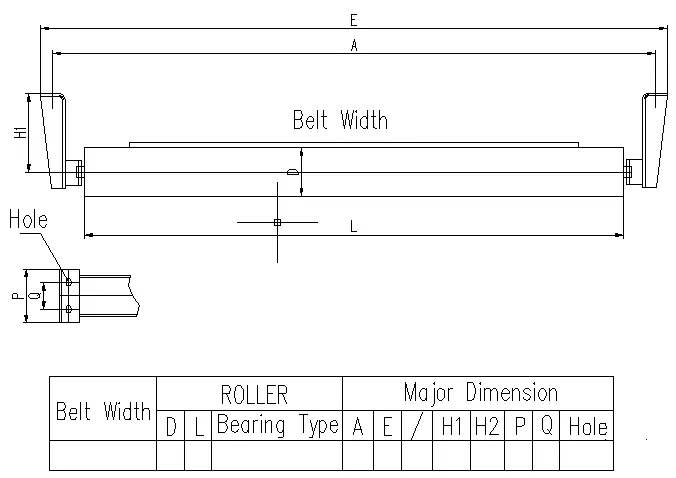 Afrikaans
Afrikaans  Albanian
Albanian  Amharic
Amharic  Arabic
Arabic  Armenian
Armenian  Azerbaijani
Azerbaijani  Basque
Basque  Belarusian
Belarusian  Bengali
Bengali  Bosnian
Bosnian  Bulgarian
Bulgarian  Catalan
Catalan  Cebuano
Cebuano  Corsican
Corsican  Croatian
Croatian  Czech
Czech  Danish
Danish  Dutch
Dutch  English
English  Esperanto
Esperanto  Estonian
Estonian  Finnish
Finnish  French
French  Frisian
Frisian  Galician
Galician  Georgian
Georgian  German
German  Greek
Greek  Gujarati
Gujarati  Haitian Creole
Haitian Creole  hausa
hausa  hawaiian
hawaiian  Hebrew
Hebrew  Hindi
Hindi  Miao
Miao  Hungarian
Hungarian  Icelandic
Icelandic  igbo
igbo  Indonesian
Indonesian  irish
irish  Italian
Italian  Japanese
Japanese  Javanese
Javanese  Kannada
Kannada  kazakh
kazakh  Khmer
Khmer  Rwandese
Rwandese  Korean
Korean  Kurdish
Kurdish  Kyrgyz
Kyrgyz  Lao
Lao  Latin
Latin  Latvian
Latvian  Lithuanian
Lithuanian  Luxembourgish
Luxembourgish  Macedonian
Macedonian  Malgashi
Malgashi  Malay
Malay  Malayalam
Malayalam  Maltese
Maltese  Maori
Maori  Marathi
Marathi  Mongolian
Mongolian  Myanmar
Myanmar  Nepali
Nepali  Norwegian
Norwegian  Norwegian
Norwegian  Occitan
Occitan  Pashto
Pashto  Persian
Persian  Polish
Polish  Portuguese
Portuguese  Punjabi
Punjabi  Romanian
Romanian  Russian
Russian  Samoan
Samoan  Scottish Gaelic
Scottish Gaelic  Serbian
Serbian  Sesotho
Sesotho  Shona
Shona  Sindhi
Sindhi  Sinhala
Sinhala  Slovak
Slovak  Slovenian
Slovenian  Somali
Somali  Spanish
Spanish  Sundanese
Sundanese  Swahili
Swahili  Swedish
Swedish  Tagalog
Tagalog  Tajik
Tajik  Tamil
Tamil  Tatar
Tatar  Telugu
Telugu  Thai
Thai  Turkish
Turkish  Turkmen
Turkmen  Ukrainian
Ukrainian  Urdu
Urdu  Uighur
Uighur  Uzbek
Uzbek  Vietnamese
Vietnamese  Welsh
Welsh  Bantu
Bantu  Yiddish
Yiddish  Yoruba
Yoruba  Zulu
Zulu Effective Solutions for Maintaining Your Scraper Belt Cleaner Performance and Longevity
The Importance of Scraper Belt Cleaners in Industrial Conveying Systems
In industrial environments where bulk materials are transported via conveyor belts, maintaining cleanliness and efficiency is vital. Scraper belt cleaners play a crucial role in achieving this objective. These devices are designed to remove residue and materials that stick to the belt after the material has been discharged. The necessity for effective belt cleaning is underscored by its impact on operational efficiency, safety, and equipment longevity.
Understanding Scraper Belt Cleaners
Scraper belt cleaners are mechanical devices typically installed at various points along a conveyor system, most commonly at the discharge point of the conveyor belt. They consist of a scraping element, which can be made of urethane, rubber, or metal, depending on the specific application and the type of materials being handled. The scraping element makes contact with the belt surface, removing any leftover materials or debris before the belt returns to its initial position.
There are different types of scraper cleaners, including primary and secondary cleaners. Primary cleaners are positioned at the discharge point and are responsible for the majority of the cleaning, while secondary cleaners further polish the belt by removing any remaining residue. For industries dealing with sticky or abrasive materials, utilizing a combination of both types can significantly enhance cleaning efficiency.
Benefits of Using Scraper Belt Cleaners
1. Maintenance of Conveyor Efficiency One of the primary advantages of using scraper belt cleaners is the maintenance of conveyor efficiency. When materials cling to the belt, it can lead to increased wear and tear, reduced speed, and less effective material transportation. By ensuring that the belt is kept clean, these cleaners help enhance the overall performance of the conveyor system.
scraper belt cleaner

2. Reduction of Material Waste Residue left on conveyor belts can lead to significant material wastage over time. By effectively removing these materials, scraper belt cleaners help minimize waste, ensuring that more of the transported materials reach their intended destination. This not only has economic benefits, but also contributes to a more sustainable operational model.
3. Safety Considerations Accumulated materials can pose safety hazards in industrial settings. They may cause slips, trips, and falls, which can lead to serious injuries. Additionally, excessive buildup can lead to belt slippage and demoralization of the standard operation. Scraper belt cleaners mitigate these risks by keeping the working environment tidy and safe.
4. Prolonging Equipment Life The ability to keep conveyor belts clean translates into a significant reduction in maintenance costs and downtime. When belts are regularly cleaned, they experience less wear, leading to a longer lifespan for the equipment. This is particularly important in high-capacity operations, where the cost of repairs and replacements can be substantial.
5. Enhanced Product Quality For industries that require high-quality standards, such as food processing or pharmaceuticals, cleanliness on conveyor belts is non-negotiable. Any foreign material can compromise product quality, leading to contamination. Scraper belt cleaners ensure that these critical standards are consistently met.
Conclusion
In conclusion, scraper belt cleaners are essential components in the effective maintenance of conveyor systems across various industries. Their ability to enhance operational efficiency, reduce waste, improve safety, prolong equipment life, and maintain product quality makes them indispensable in modern industrial settings. Investing in the right scraper belt cleaning system can yield significant returns in terms of productivity and safety, ultimately contributing to a company's bottom line. As industrial processes continue to evolve, the importance of effective belt cleaning solutions will only increase, making scraper belt cleaners a crucial consideration for any operation relying on conveyor technology.
-
Revolutionizing Conveyor Reliability with Advanced Rubber Lagging PulleysNewsJul.22,2025
-
Powering Precision and Durability with Expert Manufacturers of Conveyor ComponentsNewsJul.22,2025
-
Optimizing Conveyor Systems with Advanced Conveyor AccessoriesNewsJul.22,2025
-
Maximize Conveyor Efficiency with Quality Conveyor Idler PulleysNewsJul.22,2025
-
Future-Proof Your Conveyor System with High-Performance Polyurethane RollerNewsJul.22,2025
-
Driving Efficiency Forward with Quality Idlers and RollersNewsJul.22,2025





























